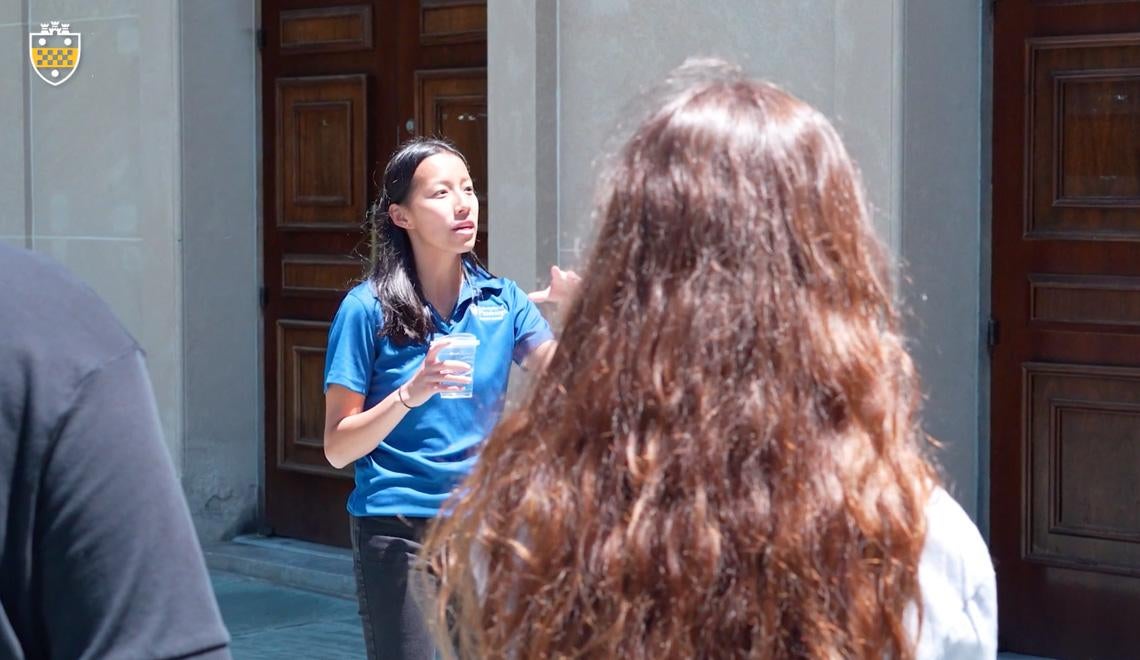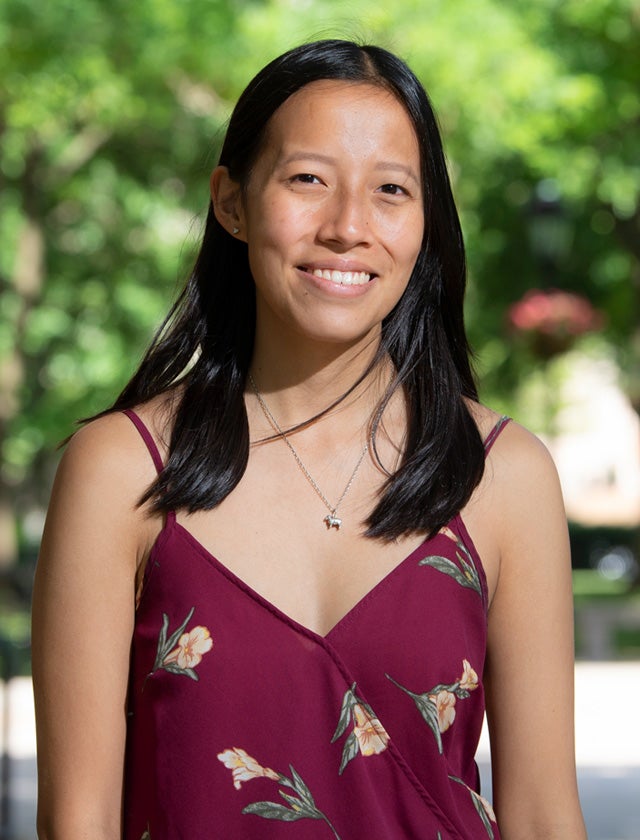
Subscribe to Pittwire Today
Get the most interesting and important stories from the University of Pittsburgh.A future doctor who values elders and offers comfort in the hospital and beyond.
An older woman falls at home and can’t walk. Her hip might be broken, and she needs to go to a hospital, pronto. The ambulance arrives swiftly, but there’s a problem — the woman refuses to get in. She’s upset and crying.
One of the emergency medical technicians, Mia Achitoov (A&S ’22), sits down with her, holds her hand. The lights are blazing on the ambulance outside and time is critical, but they pause to talk. The woman explains that she’s worried about getting COVID-19 and being quarantined from her family. Achitoov listens carefully and reassures her. Fifteen minutes later, the woman agrees to go.
“I knew it was important to learn her perspective and offer understanding and respect,” said Achitoov. She thrives in providing comfort to people and has always wanted to become a doctor.
She began working part time as an EMT in her hometown Millburn, New Jersey, while in high school, at the youngest age eligible to undertake the job. Then she came to the University of Pittsburgh to study neuroscience and chemistry on a pre-med track.
At Pitt, she knew she would gain a solid foundation in science knowledge to help her care for patients, but one thing surprised her: She found she loves lab research, too. During her first year, she joined Pitt’s Translational Neuropsychopharmacology and Neuroimaging Lab, which studies depression by using imaging technology to map brain activity. All four years at Pitt, Achitoov screened and recruited people for research studies and verified and analyzed data.

“Mia was exceptional in every role and a true joy to work with,” said lab director and psychiatry associate professor Marta Peciña. With mentorship from Peciña, Achitoov wrote an honors thesis about how applying magnetic pulses to certain parts of the brain might influence the placebo effect of antidepressants. She was invited to present her findings at the 2022 Society of Biological Psychiatry Annual Meeting in New Orleans and won a travel award from Pitt’s David C. Frederick Honors College to go.
Achitoov hopes to integrate research into her future medical practice, though patient care is still her favorite aspect of the job. She has a special place in her heart for geriatric patients and has been volunteering with the Hospital Elder Life Program at UPMC Shadyside since 2019. Volunteers are trained to watch for and help prevent a serious condition in patients aged 70 and older called hospital-acquired delirium, which can result in hallucinations, confusion or lethargy, and signals that something is wrong (like a bad reaction to medication). Research shows delirium can be prevented with extra care measures like adjusting room temperature, cutting food for them, offering a hearing device if needed or simply chatting about their day — all things Achitoov does to help patients feel more comfortable and happy. If she sees signs of delirium, she documents it and alerts the care team.
“Mia’s great with patients, very kind and compassionate,” said Stacy Hunter, lead volunteer coordinator.
Outside of volunteering or lab work, Achitoov served as an ambassador for the Kenneth P. Dietrich School of Arts and Sciences, where she gave tours and talked to prospective Pitt students, sometimes providing comfort to them. She remembers one young woman who worried she’d fail as a pre-med student because she didn’t do an internship in high school. Achitoov assuaged her fears and told her there was plenty of time to gain experience later.
Achitoov would also reassure students that it’s possible to enjoy a social life amid demanding studies like she did — throughout her time at Pitt she was active in the Delta Phi Epsilon sorority, the Jewish Greek Life Association and the Jewish life group, Hillel.
For med school this fall, it’s fitting that Achitoov has chosen an institution known for its community care focus: Eastern Virginia Medical School in Norfolk. Through its Community-Engaged Learning program, med students engage in a service experience to make a difference in the community while learning intangible skills that will help them become better physicians. Achitoov has her eye on an option called palliative medicine, which focuses on improving quality of life for seriously ill patients and their families.
— Liberty Ferda, photography by Aimee Obidzinski



